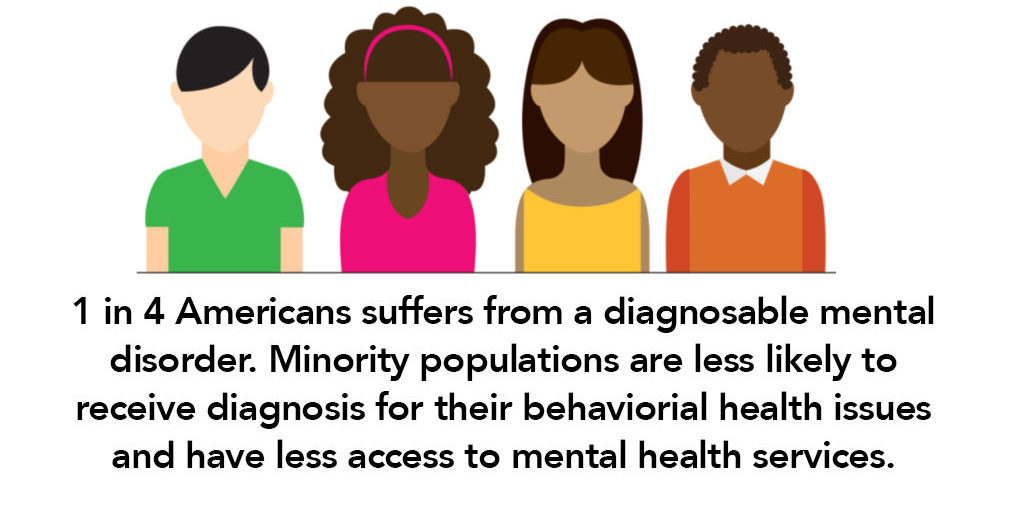The year 2020 has been a tough one. Top news: racial inequities and a pandemic that disproportionately affects people of color. July is Minority Mental Health Awareness Month and is a good time to learn how to seek help or be an ally to those who may be struggling.
Understanding the purpose of Minority Mental Health Awareness Month
The pioneer of National Minority Mental Health Awareness Month is Bebe Moore Campbell. An author, Bebe was an unwavering advocate for the mentally ill and the founder of NAMI Urban Los Angeles. She lost her battle with brain cancer in 2006.
“Stigma is one of the main reasons why people with mental health problems don’t seek treatment or take their medication,” Campbell said in an NPR news article. “People of color, particularly African Americans, feel the stigma more keenly. In a race-conscious society, some don’t want to be perceived as having yet another deficit.”
In 2008, the U.S. proclaimed July as Bebe Moore Campbell National Minority Mental Health Awareness Month. Today, over a decade later, many organizations, including Family & Children’s Services, are still dedicated to helping to reduce the stigma associated with mental illness and treatment, especially among cultures and communities where that stigma is more prevalent.
Despite advances in health equity, disparities in mental health care persist. The Agency for Healthcare Research and Quality (AHRQ) reports that racial and ethnic minority groups in the U.S. are less likely to have access to mental health services, less likely to use community mental health services, more likely to use emergency departments, and more likely to receive lower quality care. Poor mental health care access and quality of care contribute to poor mental health outcomes, including suicide, among racial and ethnic minority populations.
According to the Substance Abuse and Mental Health Services Administration (SAMHSA) and the CDC:
- 10.5% (3.5 million) of young adults age 18 to 25 had serious thoughts of suicide including 8.3% of non-Hispanic blacks and 9.2% of Hispanics. (2017 data)
- 7.5% (2.5 million) of young adults age 18 to 25 had a serious mental illness including 7.6% of non-Hispanic Asians, 5.7% of Hispanics and 4.6% of non-Hispanic blacks. (2017 data)
- Feelings of anxiety and other signs of stress may become more pronounced during a global pandemic.
- People in some racial and ethnic minority groups may respond more strongly to the stress of a pandemic or crisis.
Throughout July, Family & Children’s Services will provide resources and information to commemorate this special month.









